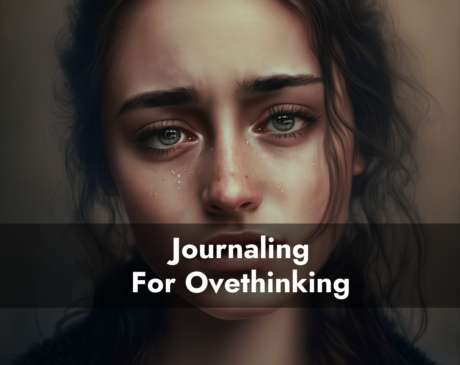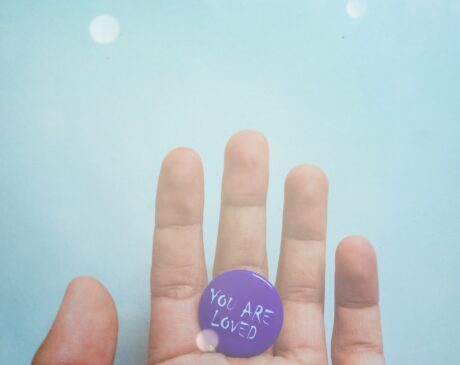
150 Ultimate Journal Prompts For Forgiveness: Heal, Grow, Forgive
Table of Contents
Introduction
Just want the 150 Journal Prompts For Forgiveness? Go to this part of the article.
Do you remember the last time you genuinely forgave someone?
I bet the memory is as vivid as yesterday.
Maybe it was the neighbor who accidentally backed into your car, or perhaps it was more personal, like forgiving a long-time friend for betraying your trust.
Whatever it was, the act of forgiveness likely took you on an emotional roller-coaster.
Was it a daunting experience? Filled with raw emotion? Or was there a certain liberation in that act?
We’ve all been there, at that crossroads where we had to choose between holding onto resentment and choosing to let go.
While forgiveness can seem like an Everest to scale, today, we’re embarking on an expedition to navigate this complex terrain. And our map? The powerful art of journaling.
Why Journaling & Forgiveness are Intertwined
Have you ever noticed how the most profound insights and epiphanies come when you’re scribbling away in your journal?
There’s something about putting pen to paper that transcends mere thought. It’s a tangible manifestation of your feelings, fears, and hopes.
When it comes to forgiveness, journaling acts like a guiding star. It offers clarity amid the storm of emotions.
Remember the dense fog of anger, confusion, or sadness that clouds judgment? Journaling pierces through it, giving you a clear line of sight.
Your Inner Dialogue Matters
Journaling is essentially a conversation with yourself. When you recount that moment of betrayal or hurt, you’re not just narrating an event.
You’re also subtly negotiating with your emotions. Was the anger warranted? Was there an unseen perspective? What would empathy say about the situation?
For example, consider Kate. She was furious when her colleague took credit for her idea.
I’ve altered the names in these stories to ensure privacy
But as she journaled, she found herself penning down moments when she had felt overlooked and had acted out of desperation.
She began to see her colleague not as an enemy, but as someone equally trapped by insecurities. By the time Kate ended her journal entry, her perspective had shifted.
Now, I’m not saying journaling will magically make forgiveness easy. But what it does is provide you with an avenue to introspect, process, and maybe, just maybe, find the strength to let go.
And trust me, by the time you’ve poured out your heart and soul onto those pages, you’ll not only feel lighter but more empowered. You’ll see that the chains of resentment were not holding the other person captive, but you.
So, are you ready to embark on this journey of introspection and liberation? Go on, find that journal, and let the power of words guide you to the healing embrace of forgiveness.
Because by the end of this, I promise, you’ll be reaching out for that pen more often than you think.
Benefits of Journaling for Forgiveness
Journaling is an ancient practice, predating the famous diarists like Anne Frank. But why journal for forgiveness?
- Catharsis: Just the act of writing out your feelings can be freeing. Imagine offloading that backpack of resentment you’ve been carrying around.
- Understanding: Often, we’re hurt because we don’t fully grasp the situation. Journaling can offer new perspectives.
- Healing: Through journaling, we confront our pain head-on, facilitating the healing process.
Think of Susan. She was devastated when her best friend, Emily, shared her secret with others. But when she journaled, she realized Emily’s intentions weren’t malicious but driven by her anxiety. It’s amazing what a different lens can do!
When we merge the act of journaling with the journey to forgiveness, something magical happens.
You might also be interested in checking out these 150 Ultimate Journal Prompts For Toxic Relationships: Rediscover Yourself
How to Use Journal Prompts for Forgiveness
- Be Consistent: Dedicate a specific time daily or weekly. Early morning reflections or nighttime thoughts, you decide.
- Be Honest: This is for your eyes only. No sugar-coating.
- Stay Open-minded: As you dive deep, you might uncover memories or emotions you weren’t aware of. Embrace them.
- Review Periodically: It’s a joy to look back and see your growth.
150 Powerful Journal Prompts For Forgiveness
- What does forgiveness mean to you?
- Recall a time when you found it hardest to forgive.
- Describe an instance when someone forgave you.
- What emotions arise when you think of forgiving someone?
- Why is forgiveness important for your well-being?
- How does holding onto anger affect you daily?
- What’s the difference between forgiving and forgetting?
- Do you believe in second chances? Why or why not?
- Write about a time when you forgave yourself.
- How does forgiveness impact your mental health?
- Does forgiving mean you have to reconcile with the person?
- What boundaries can you set after forgiving someone?
- Do societal or cultural beliefs influence your perspective on forgiveness?
- How does forgiveness relate to love?
- Describe a situation where you found it easier to forgive than expected.
- Does forgiving make you feel vulnerable? Why or why not?

- Write a letter to someone you wish to forgive but haven’t yet.
- How would your life change if you forgave more often?
- What role does empathy play in forgiveness?
- Think of a fictional story that centered on forgiveness. How did it impact you?
- Write about a historical figure known for their forgiving nature.
- How does your past influence your current ability to forgive?
- Describe the physical sensations you feel when you harbor resentment.
- What affirmations can you say to yourself to promote forgiveness?
- Is there a difference between understanding someone’s actions and forgiving them?
- How does age and maturity relate to forgiveness?
- What lessons have you learned from forgiving or being forgiven?
- Do you think forgiveness is a sign of strength or weakness?
- How can you create a safe space for someone to apologize?
- List the pros and cons of holding onto a grudge.
- Reflect on a time when holding onto anger hurt more than it helped.
- How do your spiritual beliefs (if any) influence your view on forgiveness?
- Write about a forgiveness ritual or ceremony you’d like to undertake.
- What do you think of the saying, “Forgive but don’t forget”?
- Describe a moment when you witnessed genuine forgiveness between others.
- Does the act of forgiveness change depending on the relationship?
- How does communication play a role in seeking forgiveness?
- Think about someone who hurt you unintentionally. How did it differ from intentional hurt?
- What barriers do you face when trying to forgive?
- Can forgiveness be a gift to yourself?
- Explore the connection between forgiveness and personal growth.
- How does forgiving someone else help you heal internally?
- Recall a childhood memory related to forgiveness.
- What does conditional forgiveness look like?
- Explore the idea of collective forgiveness in societal contexts.
- How can art, music, or literature help in the forgiveness process?
- Write about a time when you struggled to forgive yourself.
- How can you make amends for past mistakes?
- Can forgiveness ever be a one-sided process?
- Reflect on the relationship between forgiveness and trust.
- What boundaries are essential after forgiving someone?
- Is there a deadline for forgiveness?
- Write a poem about the healing power of forgiveness.
- How does nature reflect the act of forgiveness?
- Explore the link between gratitude and forgiveness.
- Do you think forgiving is a learned behavior or innate?
- Reflect on a movie that portrayed a powerful message about forgiveness.
- Write about a cultural story or myth centered on forgiveness.
- How can journaling aid in the forgiveness journey?
- Explore the idea of self-forgiveness vs. forgiving others.
- Reflect on a song that evokes feelings of forgiveness.
- What does it mean to forgive “for yourself”?
- How does forgiving benefit relationships?
- List ways to cultivate a forgiving heart.
- Explore the idea: “Unforgiveness is like drinking poison and expecting the other person to die.”
- How does modern society view forgiveness?
- Reflect on a forgiveness quote that resonates deeply with you.
- Write about the most challenging part of the forgiveness process.
- Explore the idea: “Forgiveness doesn’t mean reconciliation.”
- How can meditation aid in fostering forgiveness?
- Write a letter of gratitude to someone who forgave you.
- Describe a time when seeking forgiveness transformed a relationship.
- What does it feel like to not be forgiven?
- Does the reason behind someone’s actions affect your ability to forgive?
- Reflect on a childhood lesson about forgiveness.
- How does time influence the act of forgiveness?
- Can one truly forgive without an apology?
- How can you be more compassionate towards yourself?
- Reflect on a book that offers insights into forgiveness.
- Does societal pressure ever deter you from forgiving?
- How do memories influence your ability to forgive?
- Can you think of a leader who exemplified forgiveness?
- Write about the link between forgiveness and inner peace.
- Describe the texture, color, and temperature of forgiveness.
- How can community or group discussions aid in understanding forgiveness?
- Is there anyone you believe is unforgivable? Why?
- How does pride interfere with forgiveness?
- Reflect on a time when not forgiving held you back.
- What role does acceptance play in the process of forgiveness?
- Write about a time when forgiveness liberated you.
- Can you think of a place that embodies the spirit of forgiveness for you?
- How do external influences (like friends or media) impact your view on forgiveness?
- Reflect on the role of vulnerability in forgiveness.
- Write about the connection between forgiveness and sleep.
- Explore the concept: “Forgiveness is a journey, not a destination.”
- How do different cultures around the world approach forgiveness?
- Can acts of service or kindness promote forgiveness?
- Reflect on the idea: “Forgiveness is a choice.”
- How can practicing mindfulness cultivate a forgiving spirit?
- Write about a personal role model for forgiveness in your life.
- Can you set an intention or goal centered around forgiveness?
- How does the act of writing or storytelling promote forgiveness?
- What role does patience play in the journey to forgive?
- Can shared experiences or traumas facilitate collective forgiveness?
- Reflect on a time when societal events called for large-scale forgiveness.
- How does the act of forgiving impact the body physically?
- Can you visualize a world where forgiveness is the default?
- What role do childhood experiences play in shaping one’s ability to forgive?
- Reflect on the difference between understanding and justification in forgiveness.
- How does the act of listening impact the forgiveness process?
- Can you think of a public figure who showcased the power of forgiveness?
- Write about forgiveness in a platonic vs. romantic context.
- How do different religions view forgiveness?
- Explore the idea: “Forgiveness is not a sign of weakness but of strength.”
- Can you think of a gesture or act that symbolizes forgiveness?
- How does forgiveness intersect with justice?
- Reflect on a time when someone’s forgiveness surprised you.
- Does forgiving require an emotional or logical approach?
- How does forgiveness impact personal growth and self-awareness?
- What steps can you take when you find it hard to believe in someone’s apology?
- How does the environment or setting influence the act of forgiveness?
- Explore the connection between forgiveness and resilience.
- How does forgiveness differ from tolerance or indifference?
- Reflect on a situation where forgiveness led to a deeper connection with someone.
- Can you think of an object or symbol that represents forgiveness for you?
- How can seeking professional help (like therapy) aid in the forgiveness process?
- Write about the role of genuine remorse in seeking forgiveness.
- Can group activities or team-building promote a spirit of forgiveness?
- How does the act of forgiveness influence future interactions with someone?
- Reflect on a time when you witnessed an unexpected act of forgiveness.
- Can a shared mission or goal lead to mutual forgiveness?
- What role does personal growth play in enhancing one’s capacity to forgive?
- Write about a public act or event that showcased the spirit of forgiveness.
- How does forgiving benefit our emotional and mental well-being?
- Can seeking solace in nature aid the process of forgiveness?
- Reflect on a time when forgiveness was a silent act, without any spoken words.
- How can daily affirmations reinforce a forgiving mindset?
- Explore the idea: “Forgiveness is an ongoing process, not a one-time act.”
- Can a shared laughter or joyous moment lead to spontaneous forgiveness?
- How do family dynamics influence one’s approach to forgiveness?
- Reflect on a moment when a small act of kindness led you to forgive.
- Can community or societal healing foster individual forgiveness?
- How can one balance the act of forgiveness while maintaining self-respect?
- Write about the connection between forgiveness and release of physical tension.
- Explore the idea: “Every act of forgiveness benefits the giver more than the receiver.”
- Can you think of a ritual or practice that helps in reinforcing forgiveness?
- How does self-awareness influence one’s capacity to forgive?
- Reflect on the symbiotic relationship between forgiveness and hope.
- Explore the concept: “Forgiveness is an act of self-love.”
- Write a letter to your future self about the importance of always choosing forgiveness.
Final Thoughts
Congratulations! You have taken the first steps towards transforming your life.
Journaling is not just a record-keeping exercise. It’s a journey of introspection. As you traverse through the pages of self-reflection, you start to see the world, and especially forgiveness, differently.
Every time you write, remember that you’re not just putting ink to paper. You’re paving the road for a happier, lighter, and more forgiving you. So, the next time you’re struggling with forgiveness, pick up that journal and let “Journal Prompts for Forgiveness” guide you to peace.
Happy journaling, folks! May your journey be transformative. 📓✨
Don’t forget to bookmark this page, share it with friends, and revisit it whenever forgiveness seems like a distant dream. Remember, healing is a journey, and every word you write brings you closer to your destination.
Frequently Asked Questions
What is the primary purpose of these journal prompts?
The main aim of these prompts is to guide individuals on a self-reflective journey to understand, process, and embrace forgiveness, ultimately aiding in personal growth and healing.
Do I need any prior journaling experience to benefit from these prompts?
Absolutely not! Whether you’re a seasoned journaler or just starting out, these prompts are designed to be accessible and beneficial to everyone.
How often should I use these prompts?
The frequency is entirely up to you. Some might prefer daily reflections, while others might opt for a weekly deep dive. Tune into your emotions and proceed at a pace that’s right for you.
Can I repeat prompts?
Yes, absolutely. Revisiting prompts can provide new insights as you grow and evolve in your forgiveness journey.
Is it necessary to finish the prompts sequentially?
No. You can choose any prompt that resonates with you at a particular moment. The journey of forgiveness isn’t linear, so feel free to navigate the prompts as you see fit.
Can journaling really help me forgive someone?
Journaling serves as a great tool for introspection and comprehension. While it’s just one step in the journey, it can be instrumental in processing emotions and gaining clarity on situations, making the path to forgiveness more accessible.
What if I’m struggling with a particular prompt?
That’s okay! Not every prompt will resonate with everyone. If you find a particular topic challenging, you can either skip it or revisit it later when you feel more prepared.
Is there a recommended time or setting for journaling?
Everyone is different, but many find it helpful to journal in a quiet, comfortable space free from distractions. Some prefer the calm of early morning, while others find solace in journaling before bed. Find what works best for you.
How can I ensure I maintain privacy with my journal entries?
You can use a physical journal with a lock, maintain a digital diary with password protection, or even use coded language or symbols that only you understand.
Can I share my reflections or responses to these prompts with others?
Absolutely! Sharing can be therapeutic and provide additional perspectives. However, only do so if you feel comfortable and safe. Remember, your journal is a personal space, and it’s entirely up to you to decide what to share and with whom.
Check out other trending articles that might be of interest for you:
- Try this Low Dopamine morning routine to start your day in alignment
- Are you looking to win your ex back? Check out The Whisper Method Manifestation
- 100 Positive New Job Affirmations To Excel In Your New Job
- 50 Abundance Quotes To Inspire The Abundance Mindset Of Prosperity
- 25 Limiting Beliefs Quotes And How To Overcome Common Limiting Beliefs
- 155 Powerful Abundance Affirmations For Manifesting Abundance














// Comments //
// Trackbacks & Pingbacks //
[…] forgiveness is one of the most challenging habits to adopt, but it can also be the most rewarding. Holding onto […]
[…] deeper with related topics: Dive into other areas of self-discovery with our articles on journal prompts for forgiveness and journal prompts for toxic […]
[…] Check out these 120 Journal Prompts for Forgiveness […]